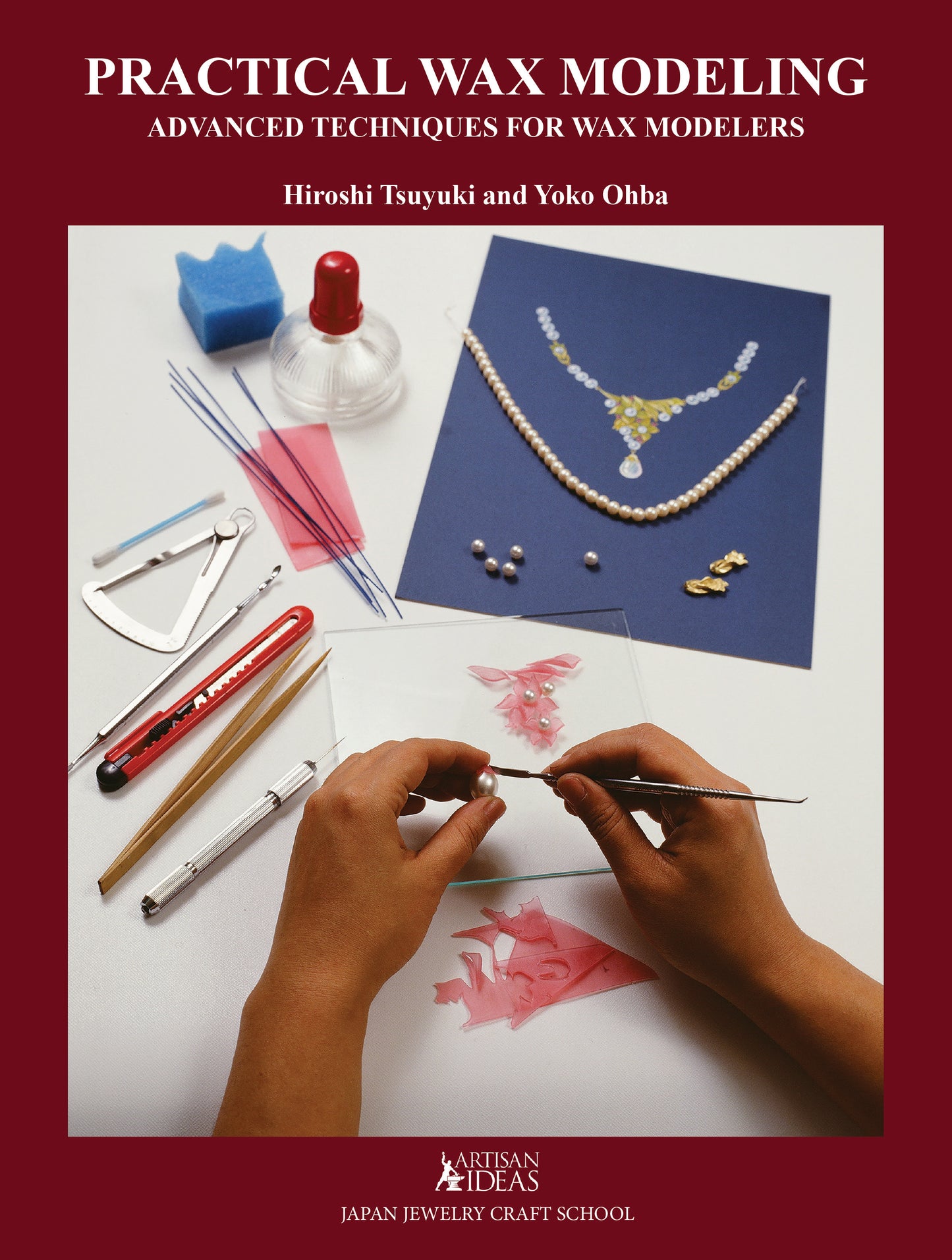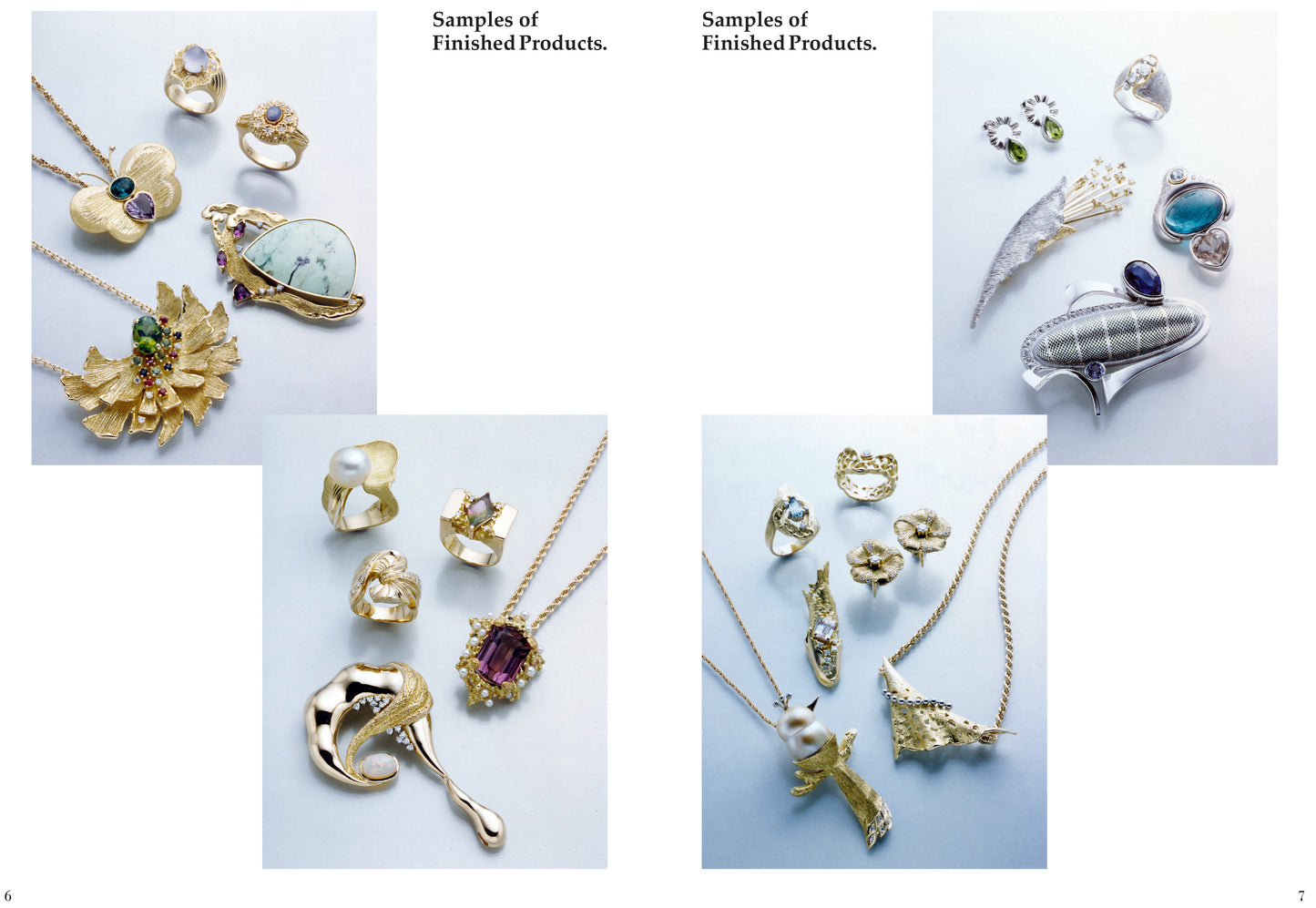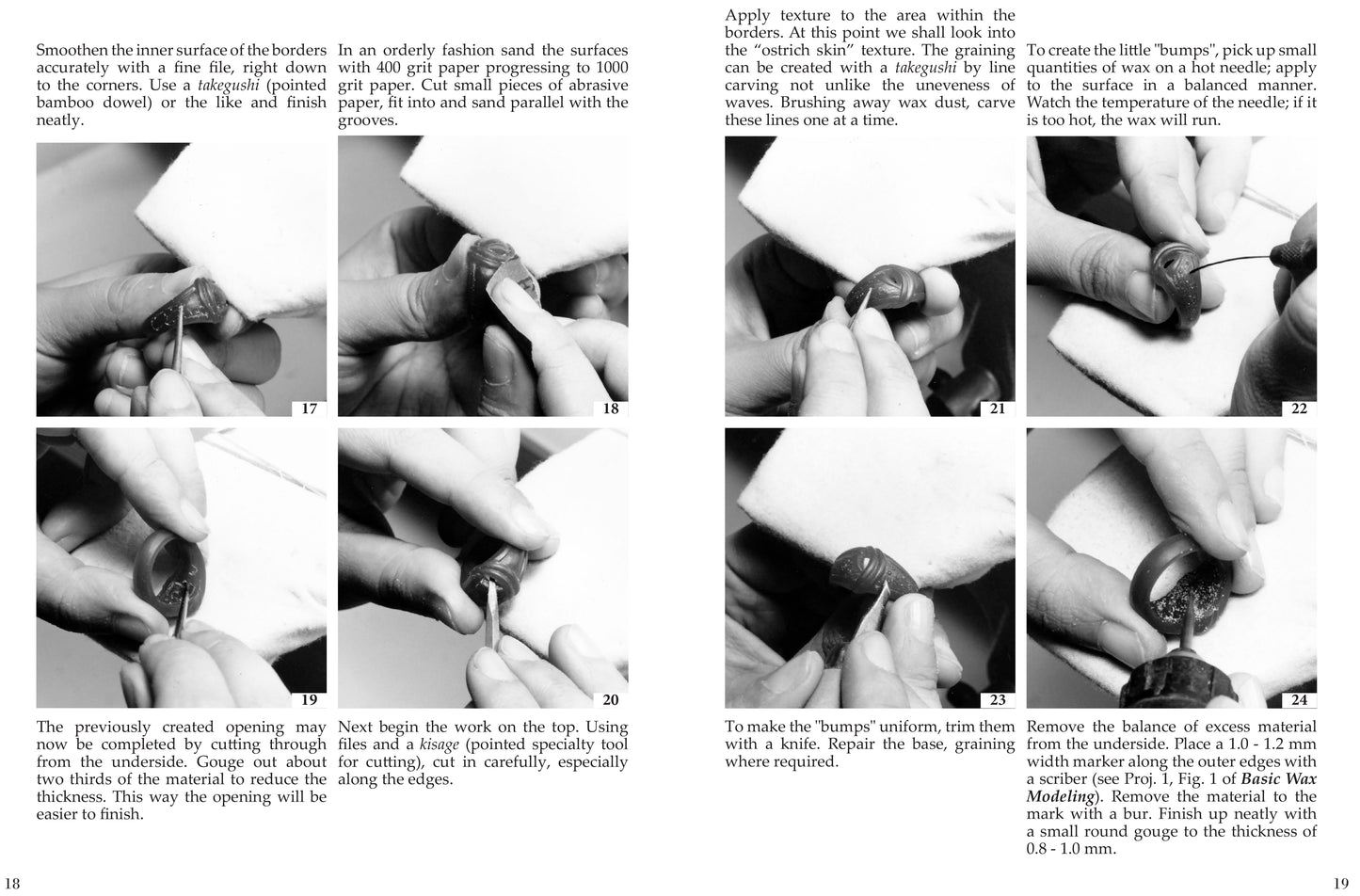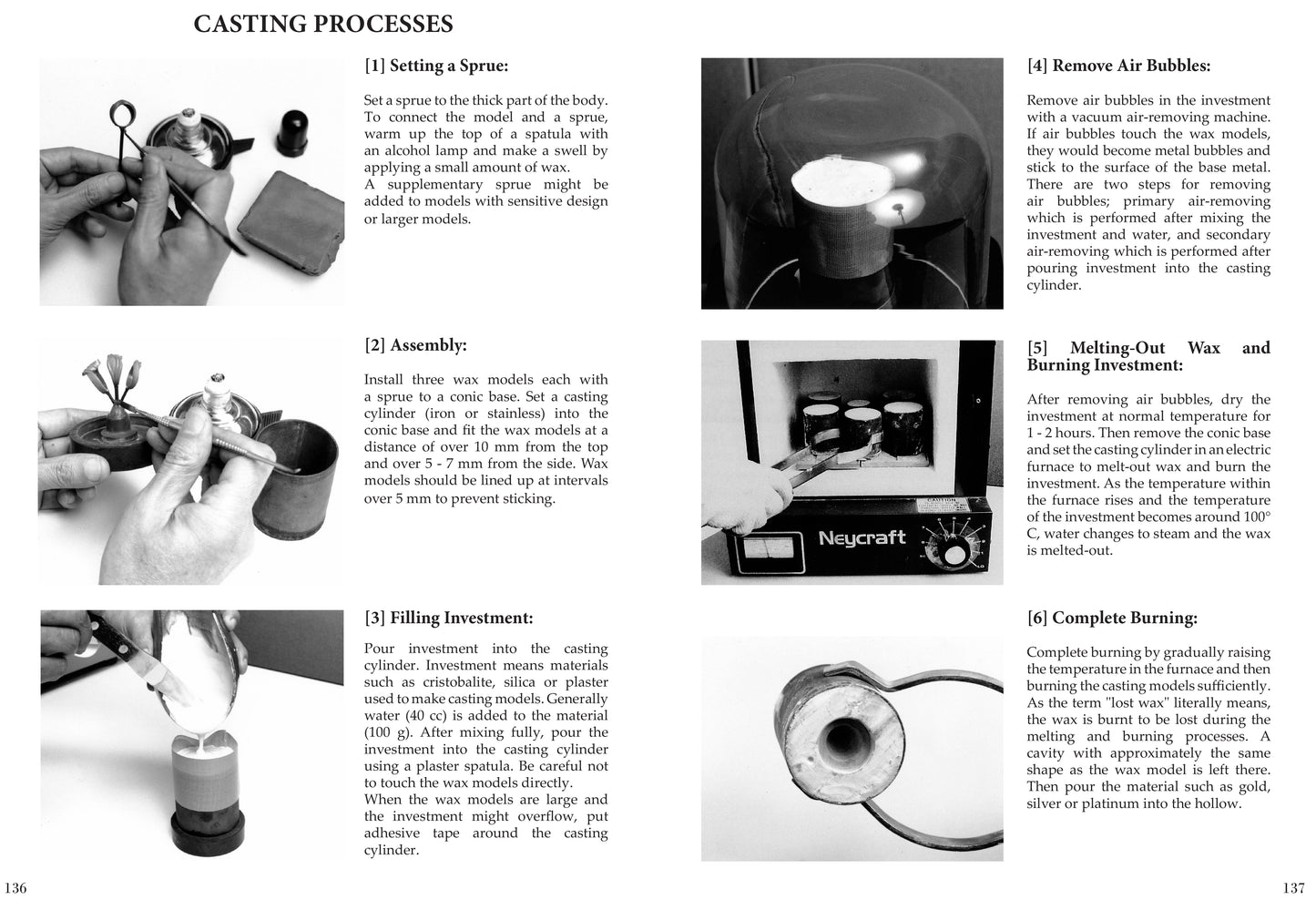Practical Wax Modeling
Practical Wax Modeling
Couldn't load pickup availability
View full details
“I highly recommend this book of technical information and procedures for anyone wanting to learn wax modeling techniques" - - Charles Lewton-Brain (internationally known jeweler, lecturer, author, designer, inventor of Fold-Forming.
In this renowned book written by Japan's pre-eminent jewelry wax modeler, Hiroshi Tsuyuki, modeling techniques are introduced and explained in detail, illustrated with step-by-step photographs.
Some special features of Practical Wax Modeling include:
a) Practical applications when using a variety of waxes
b) Mitsuro and its uses
c) Demonstrations of a variety of textures
d) Methodology of finishing castings.
Practical Wax Modeling was written as an applied compilation of projects for the authors' introductory book Basic Wax Modeling.
TABLE OF CONTENTS
Samples of Wax Modeling Techniques 4
Samples of Finished Products 5,6,7
Wax Modeling for Professionals 9
Special Features and Suggestions 10
I. HARD WAX MODELING TECHNIQUES 11
Textured Ring 13
Two Part Ring 21
Ring with a Floating Twist 27
Built-Up Ring 31
Hollow Pendant 35
Brooch Using Hard and Soft Wax 43
Brooch with Realistic Modeling 47
II. SOFT WAX MODELING TECHNIQUES 59
Embossed Figure Brooch 61
Floral Patterned Ring 65
Ring of Wax Wire Construction 69
Pendant Constructed of Wax Wire 73
Making Mitsuro 79
Mitsuro Ring 83
Mitsuro Brooch 89
Mitsuro Pendant 95
Modeling Mitsuro with Other Materials 99
Free Forming 103
III. MODELING TECHNIQUES WITH GEMSTONES 109
Cabochon Mounting for a Pendant in Soft Wax 111
Cabochon Mounting for a Ring in Hard Wax 117
IV. OTHER MODELING TECHNIQUES 125
Sizing 126
Applying Various Textures 128
Reworking a Wax Pattern 130
V. CASTING PROCESSES & RUBBER-MOLD MAKING 135
Casting Processes 136
Rubber-Mold Making 140
VI. PROCESSING & FINISHING AFTER CASTING 143
AFTERWORD 151
APPENDIX 152
Mr. Hiroshi Tsuyuki, is the Japanese authority on Jewelry Wax Modeling.
Review text
“I highly recommend this book of technical information and procedures for anyone wanting to learn wax modeling techniques… this book is clear and well organized. Good large step-by-step explanatory black and white photos illustrate the points made in the concise, strictly informational text. This is the second in a series of books on professional wax working for lost wax casting. It might be useful to have read the first volume - ‘Basic Wax Modeling’ before this volume but it is still a good stand-alone text”.







